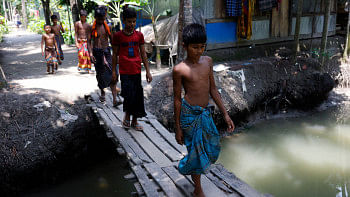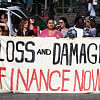So much investment in arms, so little in saving the planet

We commend Prime Minister Sheikh Hasina's appeal to the international community to end the senseless arms race and divert resources to combat climate change. Her statement featuring a six-point suggestion at the Munich Security Conference offers a wise strategy for the world leaders to follow against the backdrop of ongoing wars in Ukraine and Gaza that have taken thousands of lives. It is all the more relevant in a world that is far behind its targets to reduce global warming.
At the conference, the PM was upfront about her critical views on the current conflicts, especially the mindless killings of civilians in Gaza and elsewhere. We are inspired by her candour and public condemnation of these blatant human rights violations. She again called on developed countries to live up to their commitment of $100 billion funding per year in the two years up to 2025. She asked for improving access to existing international funds by developing countries and investing in their capacity. She also gave some practical solutions to jumpstart the various aspects of climate action, such as governments investing in the right plans, and policies and instruments to mobilise private capital flows for climate action.
It is quite an achievement that the PM took the initiative to set up the Bangladesh Climate Change Trust Fund to undertake home-grown adaptation polices. So far, according to the PM, Bangladesh has implemented nearly 800 projects at a cost of $480 million from its own funds. In this connection, the PM highlighted Bangladesh's increasing vulnerability to climate change despite having negligible contribution to global emissions. She stated that Bangladesh will lose an estimated two percent from annual GDP because of climate change, and the loss can go up to nine percent if the current pace of change continues. She added that an estimated 13.3 million people in Bangladesh could be internally displaced due to its impacts. Thus, the need for developed nations to step up and provide increased funds to mitigate the effects of climate change-related disasters cannot be more urgent.
It goes without saying that climate financing must be raised with the polluting parties paying more to help the less polluting but more vulnerable parties. At the same time, all vulnerable countries eligible for these climate funds must have adequate mechanisms to make sure that these funds are used efficiently and judicially, targeting the right people without any waste or irregularities.


 For all latest news, follow The Daily Star's Google News channel.
For all latest news, follow The Daily Star's Google News channel. 










Comments